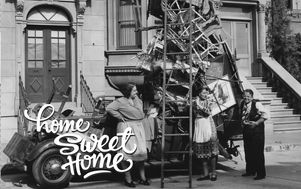top of page
Health & wellbeing
Although many of us enjoy the sunshine, we are increasingly likely to experience extreme summer temperatures that may be harmful to health. We do not know whether there will be severe heat over the course of this summer, but we do want to make sure that everyone takes simple precautions to stay healthy during periods of hot weather and when in the sun.
You could be entitled to an extra £60 every week! Find out more about how to apply below.

Share:
July 2021
The weather has improved since those rainy days back in May. Whilst it’s lovely to see the sun, it’s important to stay healthy, particularly as we’re all spending a bit more time outdoors than we normally might. It’s safer to meet people outdoors, to prevent the spread of Covid. But older people do need to take more care in the heat. Over the page we hear from Hannah McGurk about ways to keep cool and healthy when the weather is hot and sunny. But first, we asked Maureen Kershaw to share some stories from the summers of her youth. Were summers longer and hotter in our childhood, or did it just feel that way? We reminisce with Maureen:
I couldn’t wait for the six-week school holiday, particularly during long hot summers.


Those of us of a certain age often remark how summers were sunnier and warmer when we were young. Well, I certainly don’t ever remember owning a summer coat as a child - we’d just put on a cardigan or jumper. There was a sense of freedom about going out without a coat, and the weather generally allowed it.I couldn’t wait for the six-week school holiday, particularly during long hot summers. The children of the neighbourhood played on the park, or we’d go for adventure walks, sometimes taking a simple picnic, and play out stories from Enid Blyton’s “The Famous Five”. We’d join in street games - but any chalking of paths had to be removed, out of respect for our neighbours. One heatwave summer, we had great fun running around barefoot on the ‘liquorice’ road. Nearby roads and pavements had been given a new coating of tarmac, which melted in the heat. We were all in trouble on returning home with tar on our feet – not the easiest to remove!
Living close to a railway line, I would wake to the sound of shunting in the goods yard. During the school holidays, the highlight was the 11.30am ‘big train’ – the ‘double header’ - a long train pulled by two steam locomotives on its journey to Newcastle. We would rush to the wall and wave to the drivers and passengers. The annual Sunday School trip took us from Headingley Station to Burley-in-Wharfedale, joining children from their Methodist Chapel, for games and a picnic on the riverbank. As our parents collected us from the station later, our eyes would be smarting and stinging from leaning out of the train windows and being met with smoke and soot from the engine!
In the 1950s, my family were lucky to have a car. It took us from A to B – on most occasions. Many a time the car wouldn’t start, or it would stall. Dad would have to crank it with the starting handle. On a visit to Saltburn, the hot day erupted into a terrific thunderstorm; torrential rain poured through the roof of our little car. We had to catch the rainwater in cups, throwing it out of the windows. Another vehicle was a Jowett Bradford van, with a bus seat in the back. Dad would lift out the seat onto the grass for picnics by the river at Bolton Abbey or Burnsall.
A seaside excursion could take around three hours each way, with the inevitable traffic jam through Malton -
or queueing for the Selby toll bridge on the way to Bridlington. On a hot day the car would be stifling, so we’d wind the windows down. This often attracted wasps, so we couldn’t win! Fearful of us breaking down, Dad would try to avoid long hills going to the coast, but coming home he would switch off the engine – saving petrol, which was still rationed – and freewheel down Garrowby Hill!
When visiting Morecambe or St Annes (“more select than Blackpool” Mum would say) we always stopped at the market gardeners en route to buy those wonderful Blackpool tomatoes. In 1953, we had our first caravan holiday at Filey’s Primrose Valley. The smell of Calor gas clung to your clothes, even after returning home. The caravan being next to the perimeter fence of ‘Butlins’, we heard all the Tannoy announcements: from “Morning Campers!” to the day’s imminent activities. I loved our holiday in a converted railway carriage at Reighton Gap - but Mum hated it, with its damp horsehair beds! The saving grace was the weather: glorious sunshine every day. My young eyes couldn’t believe it when my skin peeled with sunburn. In those days, we didn’t use sunscreen. Children played out the in hot sun and no-one thought anything of it.
1957 saw us in North Wales. Mum always wanted to stay in a quaint Welsh cottage and her dream – or nightmare – was to come true. The whitewashed cottage had ivy growing up the gable end, but unfortunately some grew inside too! Stone floors, frugal cooking facilities and a ladder to reach the bedrooms. Again, the beautiful weather saved the holiday. In Snowdonia, we were surprised to see colourful Chinese pagodas amongst the trees. It transpired that “The Inn Of The Sixth Happiness” (a film starring Ingrid Bergman) was being made there!
With hot summers and little rainfall, we lived with the threat of drought and standpipes, relying on the heavy snows of winter to supply the reservoirs. I recall visiting the Yorkshire Dales in 1990 to view the parched Thruscross reservoir, revealing the ruins of West End village. Will we have a long hot summer this year? Who knows? But one thing’s for sure – we won’t need standpipes!

Although many of us enjoy the sunshine, we are increasingly likely to experience extreme summer temperatures that may be harmful to health. We do not know whether there will be severe heat over the course of this summer, but we do want to make sure that everyone takes simple precautions to stay healthy during periods of hot weather and when in the sun.
KEEP YOUR HOUSE COOL
Homes can sometimes overheat during warmer weather, and occasionally in cooler months also. Even during a relatively cool summer 1 in 5 homes are likely to overheat. For many people, this makes life uncomfortable and sleeping difficult. Some people are particularly vulnerable to heat and for them a hot home can worsen existing health conditions.
• shade or cover windows exposed to direct sunlight.
• open windows (when it is safe to do so) when the air feels cooler outside than inside, for example, at night. Try to get air flowing through the home.
• check that central heating is turned off
• turn off lights and electrical equipment that isn’t in use.
STAY COOL FEEL WELL
Bright, hot summer days are what many of us look forward to for the rest of the year – especially in cold, wet England! However, while we’re enjoying the balmy days of summer, we should not forget that the temperature can get too high, that it can become uncomfortably hot, and for some, it can become dangerously hot.
• Keep out of the sun between 11am and 3pm, but if you have to go out in the heat, walk in the shade, apply sunscreen and wear a hat and light scarf.
• Slow down when it’s hot and have plenty of cold drinks, and avoid excess alcohol, caffeine and hot drinks.
• take a break from the heat by moving to a cooler part of the house (especially for sleeping).
• Stay connected and listen to the forecast.
COOL, SAFER PLACES
Summer is a time for people to get outside and enjoy themselves. However, the effects of excessive heat and sun exposure are sometimes not highlighted enough. Outdoor events increase exposure to heat and direct sunlight and individual behaviours often change (for example, people may be reluctant to use the toilet facilities due to the long queues and so purposely reduce fluid intake). This can lead to heat-related illness, dehydration and/or collapse.
• Find somewhere cool to rest, indoors or outdoors. • Remember that it may be cooler outside in the shade or in a public building (such as places of worship, local libraries or supermarkets); consider a visit as a way of cooling down.
• Self-isolate at home if advised to do so.
• Use cool spaces considerately, maintaining
distancing.
BE AWARE OF EXHAUSTION
Heat exhaustion is not usually serious if you can cool down within 30 minutes. If it turns into heatstroke, it needs to be treated as an emergency.
• Be aware of signs of heat-related illness: get help if you feel dizzy, weak, anxious or have intense thirst and headache.
• move to a cool place as soon as possible and measure your body temperature.
• Drink some water or fruit juice to rehydrate and rest immediately in a cool place.
• If symptoms persist call NHS 111 or in an emergency 999.
For more information on how to stay safe in hot weather, call NHS 111 or visit NHS Choices http://www.nhs.uk/heatwave
Share:
More Health & Wellbeing.
Stories, interviews and information around physical and mental health.
bottom of page










